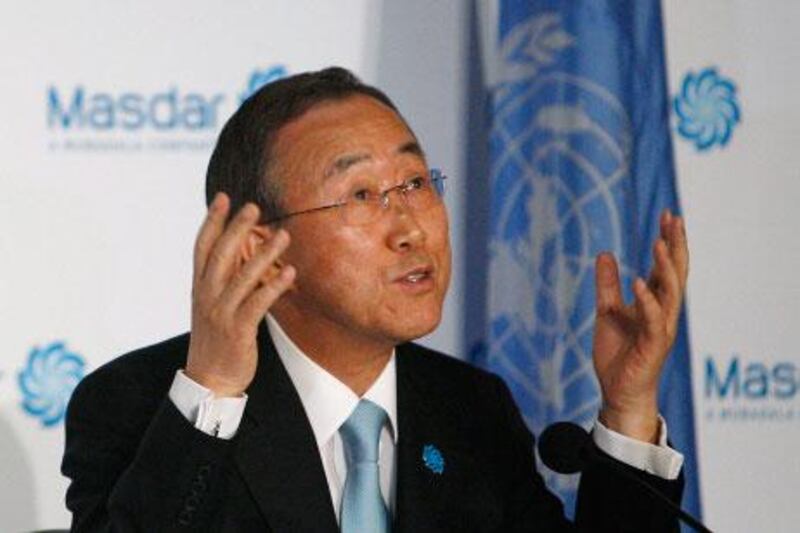Secretary-general Ban Ki-moon, in his second term as chief of the United Nations, has said he wants to help people who rose up in the Arab Spring attain and sustain freedom and democracy.
As he embarked on a new five-year term that started on new year's day, Mr Ban said one of his top priorities was to help Arab countries sustain their moves toward democracy. He also said he intended to do more for young people and women, and address frustrations over the growing gap between the rich and poor expressed by the Occupy movement.
This is a moment of historic change "which we have to seize and help them", Mr Ban said.
Mr Ban's ability to influence what happens is limited because the UN secretary-general has no independent power over international affairs. It is up to the UN's 193 member states to take action, and only the actions of the powerful 15-member Security Council are legally binding.
But the position is a powerful megaphone, and following his unanimous re-election by the UN General Assembly in June to a second and final five-year term, diplomats said Mr Ban may feel less constrained on the need to satisfy all UN members, and may become more outspoken and perhaps more influential on global issues.
Mr Ban said that the uprisings that spread "like a wildfire" across the Middle East and North Africa and inspired demonstrations in the US and other developed nations were propelled by the younger generation's rebellion against oppression and inequality - and their yearning for democratisation.
He won praise in the Middle East and elsewhere for speaking out early and strongly in support of demonstrators in Tunisia, Egypt, Libya and Yemen, urging the countries' leaders to listen to their demands.
In Syria, the limitations of his position have been more clear. While Mr Ban has been outspoken against the continuing attacks on civilians in Syria, he has not been able to influence the deeply divided Security Council to pass a resolution condemning the violence that the UN says has killed more than 5,000 people.
On Friday, Mr Ban's spokesman, Martin Nesirky, expressed the UN's support of an Arab League mission to Syria, saying it was critical that the government give full cooperation and unhindered access to the observers.
During his first five years at the UN's helm, Mr Ban has won plaudits for helping to raise climate change close to the top of the global agenda, for creating a new agency, UN Women, to focus on the fight for gender equality, and for keeping a spotlight on nuclear disarmament and nuclear security.
The workaholic Mr Ban has also been criticised for his lack of charisma, his low-key style which observers say is typical of his South Korean roots, and his failure to criticise human-rights abuses in powerful countries, especially China and Russia.
Russia's UN ambassador, Vitaly Churkin, recently expressed unhappiness with the secretary-general over his comment that Nato acted within its mandate in its bombing campaign in Libya. Russia has called for an independent UN investigation of civilian casualties, claiming Nato overstepped the UN mandate to protect civilians and used the bombing campaign to oust Libyan leader Muammar Qaddafi. Syria's President Bashar Al Assad is also a close Russian ally.
Asked to look back at Mr Ban's first term and ahead to his second, Mr Churkin said his overall performance has been "quite positive"under difficult and stressful circumstances.





